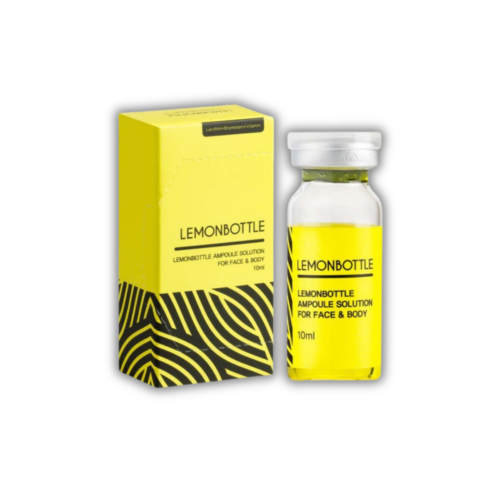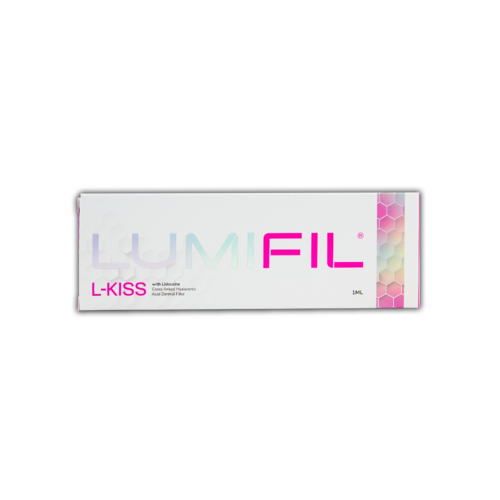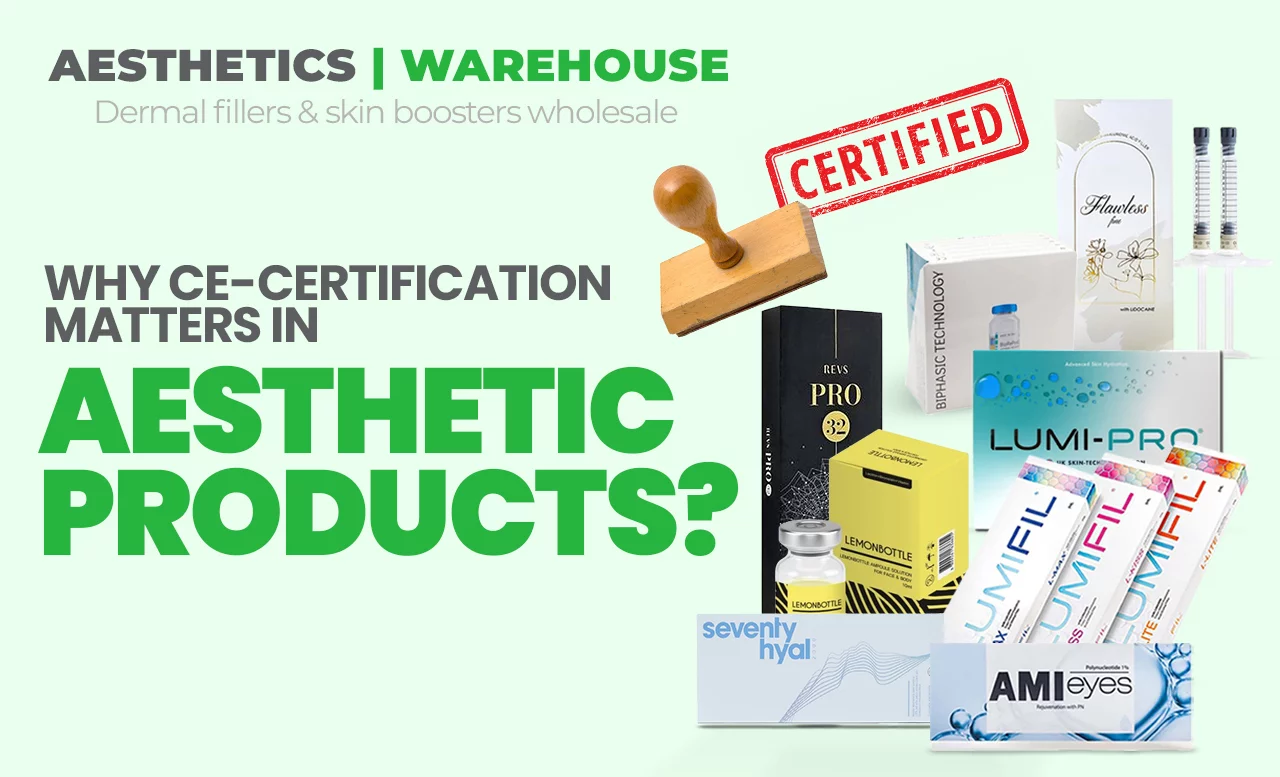Order by 3pm to Get Next Working Day Delivery
Save an extra 10%
-
HOT

Lemon Bottle ( 1 Vial )
£29.99 £24.99 ex. VAT -
HOT

Lumifil Kiss
£20.40 £17.00 ex. VAT



In today’s ever expanding aesthetics market, patients and practitioners alike are becoming more conscious about safety, transparency, and quality. With new products and technologies launching constantly, it’s important to understand how to identify which ones meet trusted standards. This is where CE Certification comes in, a recognised mark of quality and safety across Europe and beyond.
In this article, we’ll explore what CE certification is and why it matters so much in aesthetic medicine.
CE stands for “Conformité Européenne” which translates to “European Conformity.” When a product carries the CE mark, it means it complies with the relevant EU legislation, specifically regarding health, safety, and environmental protection.
For aesthetic products like dermal fillers, skin boosters, or clinic consumables such as Needles and Syringes
CE certification ensures the product:
While the UK now uses the UKCA mark post Brexit, CE certification remains widely recognised and trusted by professionals throughout Europe and internationally.
The most important reason to choose CE certified aesthetic products is patient safety. CE marked products have undergone stringent testing to ensure they are safe to use on the skin or within the body.
For example, dermal fillers that are CE certified must prove they won’t trigger allergic reactions, cause infections, or break down unpredictably. In contrast, non certified fillers, often found through unregulated suppliers, can lead to serious complications such as inflammation, migration, or even tissue damage.
Using uncertified products places patients at unnecessary risk and exposes practitioners to legal and reputational consequences.
CE certification doesn’t just cover safety; it also confirms that a product does what it claims to do. Whether it’s skin rejuvenation, volume restoration, or pigmentation treatment, a CE certified product has demonstrated that it delivers consistent results in line with its intended purpose.
For example, CE certified skin boosters will have proven hydrating and collagen stimulating effects, while CE marked microneedling devices will be shown to work safely within skin layers without causing trauma.
When practitioners use CE certified products, they can confidently stand behind their treatments, knowing the products meet quality standards backed by clinical data.
Using non CE certified aesthetic products in Europe is not only unsafe, it’s often illegal. Regulatory authorities such as the MHRA (Medicines and Healthcare products Regulatory Agency) in the UK and similar bodies across Europe require that medical devices and injectable products be CE certified or equivalent (e.g., UKCA marked in the UK) to be legally administered.
Practitioners who use uncertified or counterfeit products risk fines, criminal charges, or losing their licence to practise. CE certification offers legal protection and aligns with medical ethics to ensure patient care comes first.
CE certification also ensures that manufacturers remain accountable for the products they release. It requires a technical file, documentation on the manufacturing process, clinical evaluations, and post market surveillance. If issues arise, authorities can trace the origin, batch number, and compliance history of the product.
This level of transparency benefits everyone involved: clinicians, patients, and regulators. It helps maintain trust and drives ongoing improvements in safety and innovation.
Today’s aesthetic patients are more informed than ever. Many actively research treatments before booking and want to know what’s going into their skin. When you use and advertise CE certified products, you’re giving patients peace of mind that your clinic prioritises their safety and uses professional grade, medically approved products.
Practitioners can also confidently explain the benefits, risks, and effectiveness of each treatment, based on real evidence, not empty marketing claims.
You may also like to read: How to achieve a defined jawline with fillers: expert techniques
CE certification is more than a label, it’s a guarantee of safety, quality, and compliance. In an industry where trust is everything, using CE certified aesthetic products sets high standards and protects both practitioners and patients. In an age of online suppliers, knock off products, and budget treatments, CE certification offers a clear line between professional care and risky shortcuts. For clinics that want to deliver ethical, long-lasting results, and for clients who value their skin and health, CE certified products are non negotiable. When it comes to aesthetic medicine, never compromise. If it’s not CE certified, it’s not worth the risk.
CE stands for Conformité Européenne, meaning “European Conformity.” It indicates that a product meets EU standards for safety, health, and environmental protection.
Yes. CE certified aesthetic products undergo strict testing to ensure they’re safe, effective, and meet regulatory standards, unlike uncertified or counterfeit alternatives.
Absolutely. Using uncertified products can lead to legal consequences, including fines, loss of licence, and harm to a practitioner’s professional reputation.
Yes. It applies to a wide range of aesthetic tools and treatments, including dermal fillers, skin boosters, microneedling devices, lasers, and more.
Patients can ask their practitioner directly or look for the CE mark on packaging. Reputable clinics will only use CE certified or UKCA certified products.